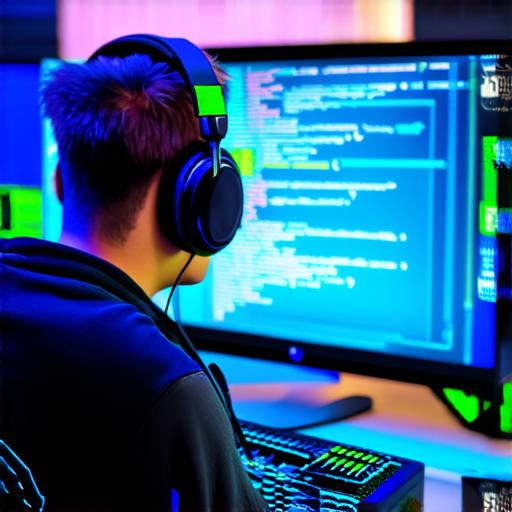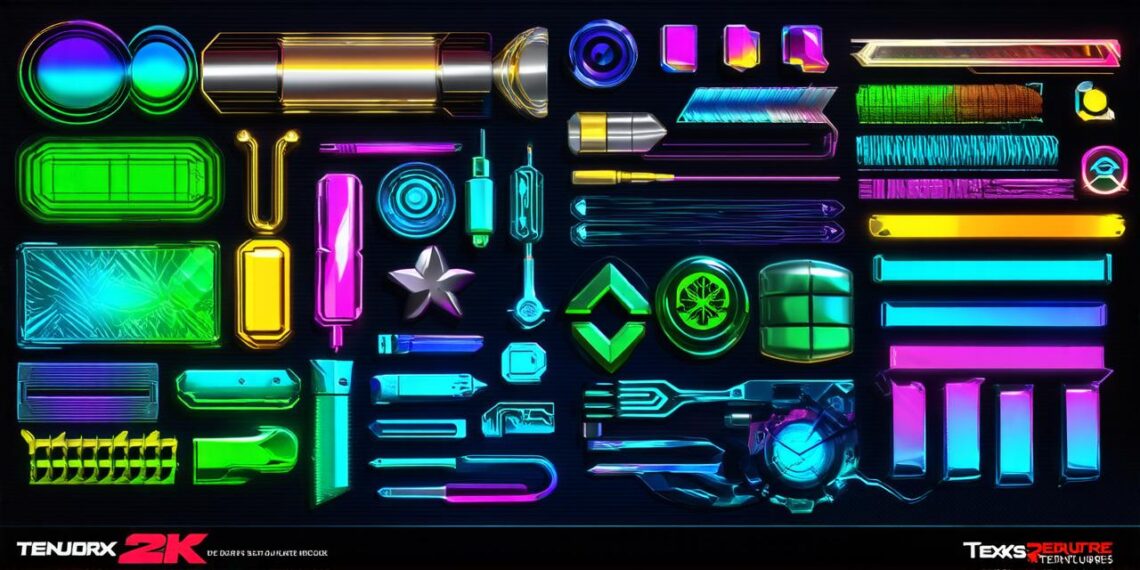Game development is a rapidly growing industry that involves creating interactive entertainment experiences for various platforms, including consoles, computers, and mobile devices. The process of game development requires a diverse range of skills and expertise, with many different roles involved in creating a successful game. In this article, we will explore the various jobs in game development and what they entail.
Artists
Concept Artists: Concept artists are responsible for creating the visual style and overall look of a game. They work closely with game designers to create concept art that helps to communicate ideas and concepts to other members of the development team. Concept artists often use 2D or 3D software, such as Photoshop or Maya, to create sketches, concept paintings, and 3D models.
Character Artists: Character artists are responsible for designing and creating the characters that appear in a game. They work closely with character designers to bring their designs to life through 2D or 3D artwork. Character artists often use software such as Photoshop or Maya to create detailed character models, textures, and animations.
Environment Artists: Environment artists are responsible for creating the environments in which games take place. They work closely with game designers to create 2D or 3D art assets that represent the game world. Environment artists often use software such as Photoshop or Maya to create detailed textures, models, and lighting effects.
Animation Artists: Animation artists are responsible for bringing characters and objects to life through animation. They work closely with character designers and animators to create 2D or 3D animations that add movement and personality to game characters and objects. Animation artists often use software such as Toon Boom Harmony or Maya to create detailed animations.
UI/UX Designers
UI/UX Designers: UI/UX designers are responsible for creating the user interface (UI) and user experience (UX) of a game. They work closely with game designers and producers to create interfaces that are intuitive, easy to use, and visually appealing. UI/UX designers often use software such as Adobe XD or Sketch to design wireframes and prototypes.

Quality Assurance Testers
Quality Assurance Testers: Quality assurance testers are responsible for testing games to ensure that they meet the necessary quality standards. They work closely with game developers to identify and report on any bugs, issues, or other problems that arise during development. Quality assurance testers often use software such as JIRA or Bugzilla to track issues and progress.
Programmers
Game Programmers: Game programmers are responsible for writing the code that makes up a game. They work closely with game designers to create the functionality, mechanics, and logic of a game. Game programmers often use programming languages such as C++ or C to write code for various platforms.
Network Programmers: Network programmers are responsible for creating the networking infrastructure that allows games to be played over the internet. They work closely with network administrators and IT professionals to ensure that games run smoothly and securely on online servers. Network programmers often use programming languages such as Java or Python to write code for networking protocols.
Mobile Developers
Mobile Developers: Mobile developers are responsible for creating games specifically designed for mobile devices, including smartphones and tablets. They work closely with game designers and artists to create games that take advantage of the unique features and capabilities of mobile platforms. Mobile developers often use programming languages such as Java or Swift to develop games for iOS and Android devices.
Console Developers
Console Developers: Console developers are responsible for creating games specifically designed for console platforms, including PlayStation, Xbox, and Nintendo Switch. They work closely with game designers and artists to create games that take advantage of the unique features and capabilities of console platforms. Console developers often use programming languages such as C++ or C to develop games for consoles.





